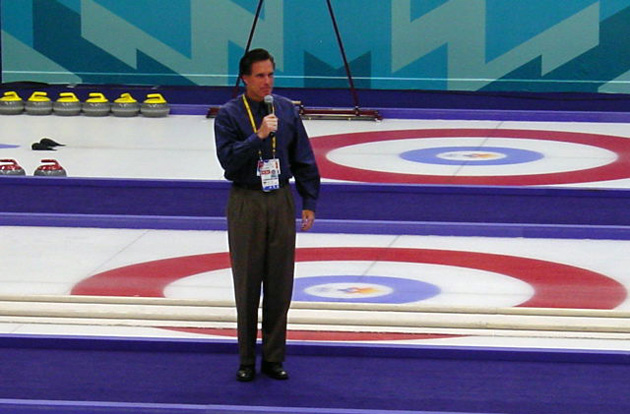Update, 8/7/12: The most current data from the 2012 games has been added to the charts.
When all the medals from the 2012 Summer Olympics in London are tallied up, the top slots will likely be occupied by the usual suspects—the United States, China, and Russia. But what if we tried to measure countries’ Olympic achievements without simply counting how many medals they bring home? What if we compared their athletes’ performance against the size of their economies and populations?
That’s what this interactive chart does. Click the play button at the bottom to see animated data starting in 1960. Hover over dots to see country names; click on a dot to turn on its label. (And scroll down to the bottom of this post for a customizable version.)


As you’ll see in the chart above, looking at Olympic records this way produces some interesting results. For example, in the 2008 Beijing games, Jamaica only won 11 medals (or 32 medal points, if you assign 4 points to gold, 2 to silver, 1 to bronze). But it outperformed the big guns like the United States and China when it came to how many medal points it got relative to its developing economy and tiny population. While the US garnered 0.02 medal points per billion dollars of GDP and 0.8 medal points for every 1 million Americans, Jamaica picked up 2.2 medal points per billion dollars of GDP and 11.9 medal points for every 1 million Jamaicans. Not bad.
By this metric, other countries that outperformed the big medal winners in 2008 included the Bahamas, Cuba, Estonia, Kazakhstan, Kenya, Mongolia, and Zimbabwe.
This isn’t necessarily a sign that these countries are up-and-coming athletic powerhouses. In some cases it simply means that they have a handful of world-class athletes and terrible economies (e.g. Ethiopia and Zimbabwe). Doing well in events that award a lot of medals also helps (e.g., Cuba and boxing and judo.) Other factors that may help countries’ overall Olympic performance: Being a former member of the Soviet Bloc or a country with a planned economy, since they are more likely to aggressively recruit and train athletes. Being the host country also provides a bump (e.g. Mexico in 1968).
A few other trends and stories pop out when you look at the data between 1960 and 2008:
• The United States’ performance relative to its population has remained pretty steady. But its performance relative to GDP has been dropping, due to economic growth.
• After poor showings in the ’60s and ’70s, China has become a major Olympic contender. Its performance relative to GDP has fallen as its economy has grown, while its performance relative to its massive population has been increasing.
• A big population can mean more medals, but it isn’t necessarily an advantage; consider India, which has a dismal Olympic record.
• A lot more countries, especially small and/or poor ones, are picking up medals. In 1960, the medals were gobbled up by big and/or rich countries. Those countries still do well, but the field is a lot more competitive now. (Note the appearance of more green and blue dots over time.) Poorer countries tend to perform better relative to their GDPs than rich ones. Wealthier countries tend to perform better relative to their population sizes than poor ones.
A few notes about the data: The chart only shows data for summer Olympic games. The economic data is incomplete for several countries, most notably Russia and other former Soviet Bloc countries; their GDPs and per capita GDPs are recorded as zero for many years. Though the data is in four-year increments, the chart automatically extrapolates the years in between games; it’s pretty, but obviously no one won any medals in 2007 or 1961.
Other quirks in the data: West and East Germany fielded a single national team in 1960 and 1964. In 1992, Russia and 11 other former Soviet republics formed the Unified Team. That year, athletes from Yugoslavia and Macedonia competed as the Independent Olympic Participants. The United States and many other nations won no medals in 1980 since they boycotted the Moscow Olympics; likewise, Russia and several Soviet-aligned nations won no medals in 1984 when they boycotted the Los Angeles games.
Use the fully customizable chart below to further explore the data. Leave your findings and questions in the comments.

















